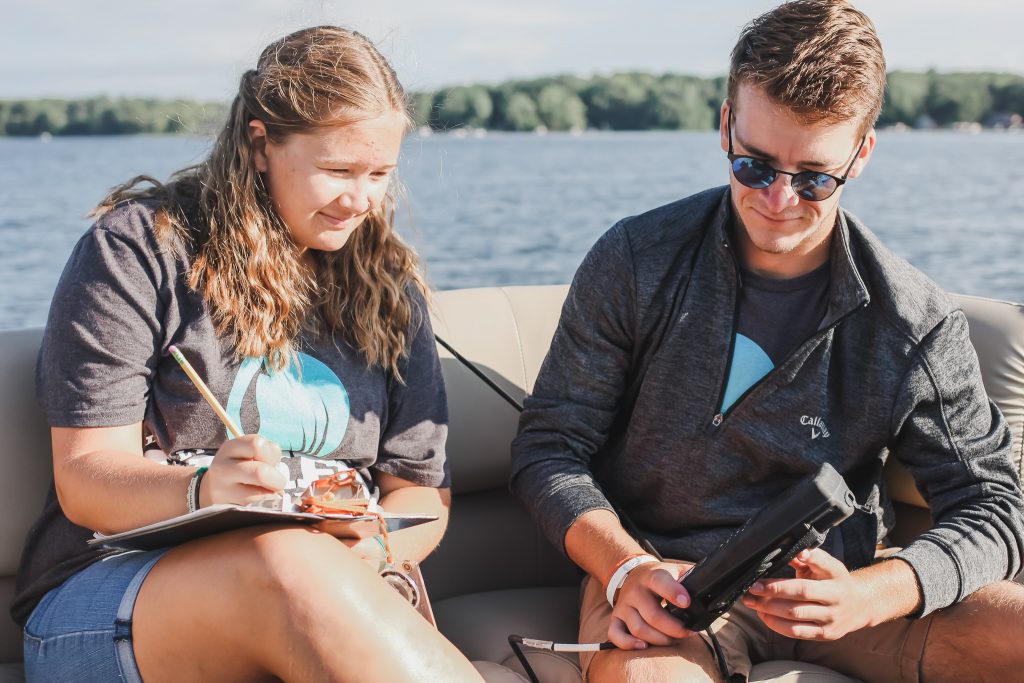Lilly Center Encourages Lake Communities to Use Caution Around Blue-Green Algae Blooms
Blue-green algae is one of the most notable threats to a lake’s health, as well as to humans and their pets. In Northern Indiana and in lakes across the United States, microcystin, one common toxin produced by blue-green algae, is known to cause harm. Researchers at the Lilly Center for Lakes & Streams are actively monitoring this health threat in Kosciusko County, with applications for those throughout the region.
Blue-green algae, also called “cyanobacteria,” grow well in warm water. As a result, shallow areas of lakes, where dogs and humans often swim, can become hot spots. Blue-green algae often appears as an oily green “paint” or frothy scum on the surface of a lake. If you notice a bloom, call the Indiana State Department of Health at (317) 233-7047 and keep people and pets out of the water.

“There isn’t a clear correlation between the amount of algae found on a lake and the amount of toxin produced,” said Dr. Nate Bosch, director of the Lilly Center. “But if you can see a bloom, it’s a good idea to stay away from it.” Blue-green algae should not be confused with duckweed on the surface or other plants growing up from the bottom of the lake, which are harmless.
When microcystin comes into contact with skin, it can cause an allergic reaction. “If it’s swallowed, or if it gets in eyes, it can do more harm than that,” said Adrienne Funderburg, research program specialist at the Lilly Center. “Microcystin is known to cause sickness or organ damage in humans; for pets, ingesting high quantities can be lethal.”
The Lilly Center has been studying blue-green algae since 2009, and has its own algae toxin research lab at Grace College in Winona Lake, as well as experts focused on the topic. For more information, email lakes@grace.edu or call 574-372-5100 ext. 6454.